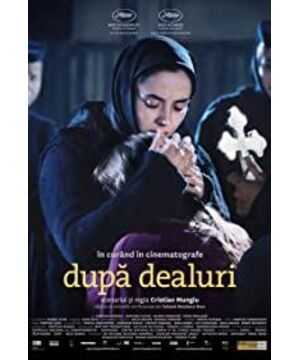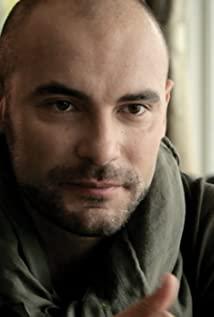After watching the film, I found that the name is like a kind of gray air permeating the beginning and end of the film.
Too many comments, one per person.
Putting aside the facts and just talking about the film, I would like to ask a few questions:
Why is the girl in the nun's clothes not known to the priest and others even though the foreign girl is not yet religious? Why do people in the monastery treat people outside the mountain as if they were people inside the mountain? After all, from the Orthodox faith, this is very abnormal.
Why didn't the girl in the nun's clothes confess her own problems?
Why did the nun girl go to see her, knowing that they had an extraordinary relationship. And live under one roof? In the Orthodox Church, such a practice is very unusual.
When other unknowing nuns asked the foreign girl what crime she had committed, she also asked along with her, and when her friends did not agree, she exposed her sins, did she not know her "friends" anymore?
Why among a group of people who don't know the truth, only she knows the root cause of her friend's illness, but she and others "exorcise" the girl? Why use the so-called "love" to hurt that girl again and again.
Why do the nuns seem to understand Orthodox dogma? Are the nuns unaware, or are a group of mountain people not so-called believers? Just a literary symbol? Or, as the title says, is a mountain person who looks at another world with the eyes of a person outside the mountain?
Why did the mountain people in this film seem to have no idea about the real pain of the mountain people after they became mountain people, only the so-called "sympathy"?
Why do you need to give help beyond your ability when you don't understand the pain of people outside the mountains? Why Forced Fasting? There is nothing in the Orthodox dogma that compels people. Why does this happen?
Why does everyone in the "monastery" seem so "innocent"?
Why do the nuns in the film say, "God knows they have no ill will?" Which religious doctrine says manslaughter is not responsible?
Why do people in the monastery in the film take the girl's money without specifying the purpose of the account? How can such a common sense thing not give an answer?
Why doesn't the "monastery" in the film look like a monastery?
Why do girls want to be nuns when they don't have God in their hearts?
Removing the outer skin of the monastery, the difference between people in the mountains and those outside the mountains, just like the last shot of the film, there are sins everywhere.
The feeling of the film is grey and there is no way out, perhaps just like the difficult social status quo in Romania now. However, is this what the world is all about?
Thanks for all the inspiration the video brings, an Orthodox believer will see so much more.
Overall, liked the film, despite its anti-religious stance.
A film is a double-edged sword. No matter what the director's position is, the viewer will recreate it by himself. If you accept the film's point of view without thinking, or simply oppose the film's point of view, you may not be able to let the film itself get its own value.
View more about Beyond the Hills reviews











